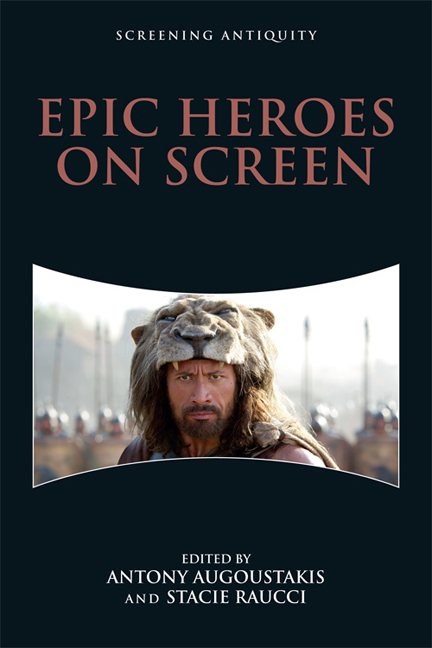Introduction: The Reinvention of the Ancient Hero
Published online by Cambridge University Press: 24 April 2021
Summary
The movie Troy (2004) opens with a voiceover by the wily warrior Odysseus in which he asks if the names and deeds of Homeric heroes will endure for centuries to come: “Will our actions echo across the centuries? Will strangers hear our names long after we’re gone and wonder who we were?” Likewise the film ends with another voiceover, again by Odysseus, in which he states that “If they ever tell my story, let them say that I walked with giants. Men rise and fall like the winter wheat, but these names will never die. Let them say I lived in the time of Hector, tamer of horses, let them say I lived in the time of Achilles.” This metatheatrical moment, thousands of years after the supposed occurrence of the action of the film, connects the modern viewers quite clearly to the stories of these ancient epic heroes. The voiceover brings the film full circle, from the questioning of the immortality of the heroes to the solidification of their names in our current memory. But Odysseus’ statement can be applied to far more than the Homeric heroes of Troy. Before there was Odysseus and Achilles in Troy, there was Maximus in Gladiator (2000), whose success ushered in an active age of the ancients on screen. While the cinematic tradition has included heroic figures from the ancient world since the early days of cinema, the beginning of the twenty-first century until very recently has proved to be prime time for recreating the heroes of the ancient world and immortalizing them on screen. Even if we are unable to determine the precise reason for the rapid release of so many onscreen ancient heroes in a short time (as it is a complicated dance of filmmakers, audience, marketing, and money), we can note that there has been a clear uptick in their sheer numbers in recent years. Sometimes the characters have been reinvented versions of earlier ones, remade in new costumes for new audiences with new values and taste. In other cases, they have been characters newly invented but with the veneer of antiquity lending a setting or backstory to a greater effect.
- Type
- Chapter
- Information
- Epic Heroes on Screen , pp. 1 - 10Publisher: Edinburgh University PressPrint publication year: 2018

